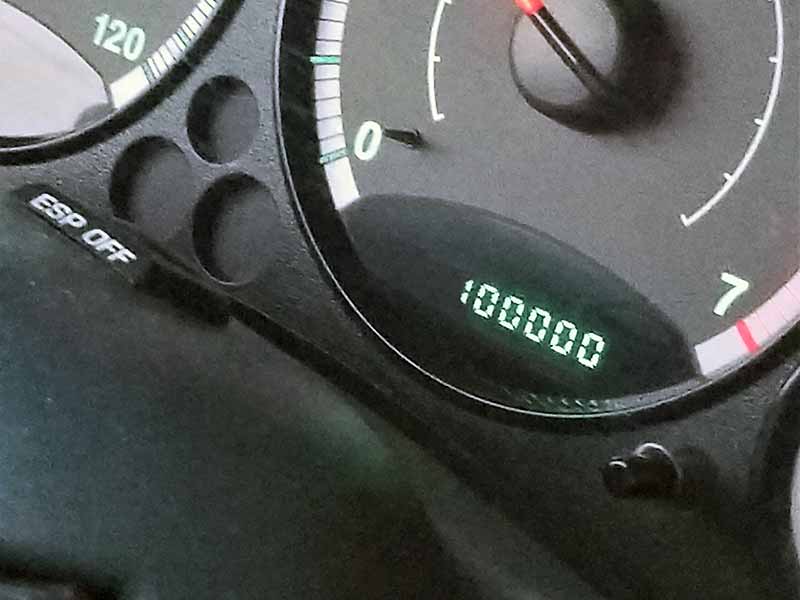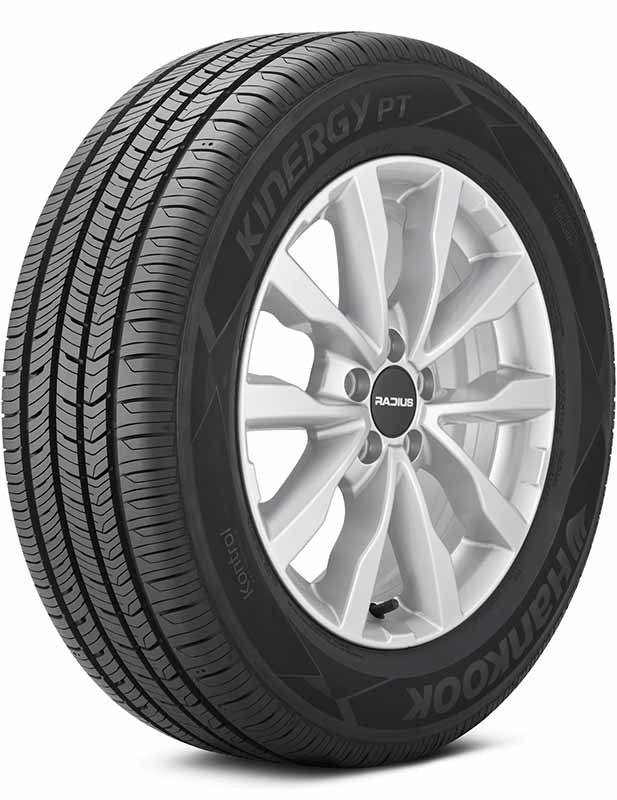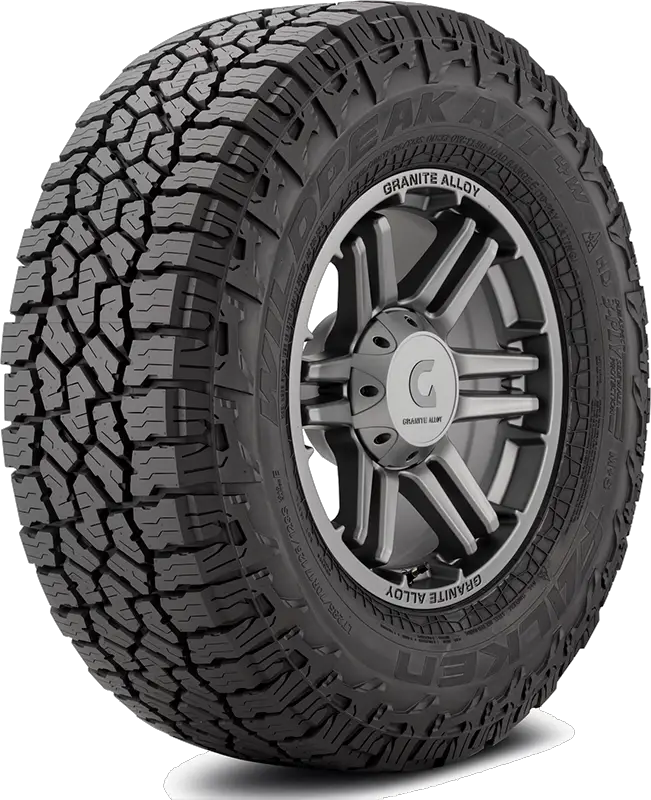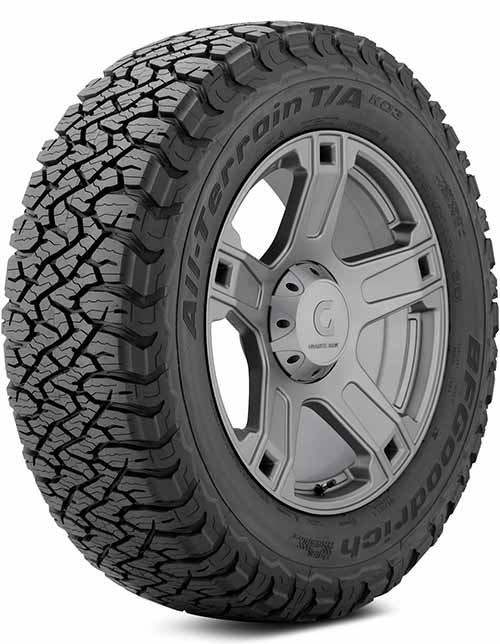If you’re hunting for tires that promise to go the distance without giving up, you’ve likely wondered about high-mileage tires. Imagine tires that keep rolling mile after mile, promising a journey that spans from your daily commutes to long road trips. This article is your guide to understanding these long-lasting travel companions, whether they’re worth the investment, and how to choose and care for them.
As of the publication of this article, the Hankook Optimo H727, known for its 100,000-mile tire tread life warranty, is no longer listed on Hankook’s official website.
However, it may still be available in some tire shops. Currently, Hankook’s highest mileage warranty tire is the Kinergy PT, offering a 90,000-mile tread life guarantee.
In this article, we’ll explore high-mileage tires, their worth, and how to choose and maintain them to ensure longevity and a great driving experience.
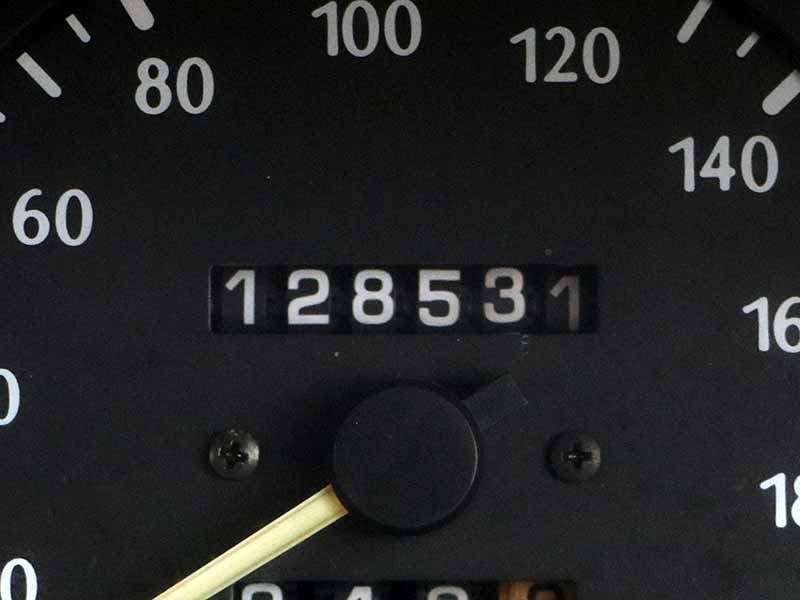
Tire Mileage Warranty Calculator
Understanding High-Mileage Tires
High-mileage tires are special kinds of tires designed to last longer than your average tire. Think of them like a pair of really durable shoes that can handle a lot of walking without wearing out quickly. These tires are built to withstand many miles of driving – often more than the average tire.
Why Choose High-Mileage Tires?
- Long-lasting: They are made to last for many miles, so you don’t have to replace your tires as often.
- Cost-effective: Even though they might cost a bit more upfront, they save you money in the long run because they last longer.
- Peace of Mind: Knowing your tires are made to last can give you extra confidence while driving.
Tire Warranties Explained
A tire warranty is like a promise from the tire maker. It says how long the tire should last under normal driving conditions. If the tire wears out too soon, the warranty might help you get a partial refund or a discount on a new tire.
- Mileage Warranty: This is the number of miles the tire maker expects the tire to last. It’s like a promise that the tire will be good for that many miles.
- Limited Duration: Warranties have time limits – usually 5 to 6 years.
- Remember: Warranties have limits. They don’t cover everything like damages from accidents or not taking good care of your tires.
The Hankook Optimo H727 – A Case Study
I remember when the Hankook Optimo H727 was a big deal in the tire world. It came with a 100,000-mile tread life warranty. That’s a really long distance! It’s like driving around the earth’s equator about four times. Although it’s not available anymore, it set a high standard for what a high-mileage tire could be.
Key Features of the Hankook Optimo H727
- Impressive Mileage: It promised to last for 100,000 miles.
- All-Season Performance: This tire was good for different weather conditions.
- Comfortable Ride: It was known for providing a smooth and quiet ride.
For a closer look at different types of tires, including those good for all seasons, you might want to read about Touring Tires vs. All-Season.
Hankook Kinergy PT
Customer Rating
Overall Rating
8.3 of 10
Wet Weather
8.7 of 10
Winter Weather
6.5 of 10
Tread Wear
9.0 of 10
Dry Weather
8.5 of 10
Ride Comfort
8.8 of 10
UTQG
Uniform Tire Quality Grade
UTQG Treadwear Rating: 800
UTQG Traction Rating: A
UTQG Temperature Rating: A
Mileage Warranty
6 Years / 90,000 Miles (T- & H-Speed Rated)
6 Years / 75,000 Miles (V-Speed Rated)
Find The Best Price
Key Performance Metrics
Hydroplaning: 8.8 of 10
Wet Grip: 8.7 of 10
Cornering: 8.6 of 10
Dry Grip: 8.5 of 10
Responsiveness: 8.6 of 10
Mild Snow Grip: 6.7 of 10
Heavy Snow Grip: 6.3 of 10
Ice Grip: 6.2 of 10
Comfort Level: 8.9 of 10
Road Noise: 8.7 of 10
Tires with the Longest Lifespan
Think of tires as the shoes of your car. Just like you want shoes that don’t wear out quickly, you want tires that can go the distance. Durable tires mean fewer replacements and more savings over time.
The Longest Lasting Tires
- Standard Touring All-Season Tires: These are like the marathon runners of the tire world. They’re built to handle different weather conditions and still last a long time.
- Key Features: They usually have a deeper tread pattern and sturdy construction, which helps them last longer.
Tips for Maximizing Tire Life
- Regular Maintenance: Keep your tires properly inflated and rotate them regularly.
- Driving Habits: Gentle acceleration and braking can help extend tire life.
- Regular Inspections: Check for any signs of wear or damage frequently.
Tires with 80,000 to 90,000 Mile Warranties
In my journey through the world of automotive tires, I’ve come across many tires that promise long life. Tires with 80,000 to 90,000-mile warranties are particularly interesting. They strike a balance between longevity and performance. Let’s dive into some of these tires and what makes them special.
Tires with 90,000 Mile Warranties
- Pirelli P4 Four Seasons Plus: A champion in durability and great performance in different weather conditions.
- Hankook Kinergy PT: Not just long-lasting but also provides excellent comfort and efficiency.
Tires with 85,000 Mile Warranties
- Yokohama AVID Ascend LX: Known for impressive balance of long wear, comfort, and fuel efficiency.
- Pirelli P4 Persist AS Plus: Offers excellent all-season performance and longevity.
- Goodyear Assurance MaxLife: Designed for maximum life, providing a reliable and comfortable driving experience.
- Kumho Solus TA11: Stands out for its all-around performance and long tread life.
Tires with 80,000 Mile Warranties
- Michelin Defender2: A powerhouse in terms of durability and all-season performance.
- Continental TrueContact Tour: Exceptional tread life and fuel efficiency, great for longevity and performance.
- Michelin Defender T+H: Offers long wear and a comfortable driving experience.
- Cooper CS5 Grand Touring: Admired for its durability, comfort, and all-season capabilities.

Are High Mileage Tires Worth It?
In my experience with various types of tires, the question of whether high mileage tires are worth the investment is a common one. Let’s explore this from a practical standpoint.
Understanding Mileage Warranties
- Limited Time: It’s important to know that mileage warranties aren’t forever. They typically have a time limit, like 5 or 6 years.
- Real-World Conditions: These warranties are based on ideal conditions. In real life, things like road conditions and driving habits can affect how long your tires last.
Considering the Value
When thinking about high mileage tires, consider these points:
- Cost vs. Longevity: High mileage tires might cost more initially, but they can save you money in the long run because they last longer.
- Quality of Ride: These tires are often designed for comfort and performance, which can enhance your driving experience.
- Safety: Well-made, durable tires can contribute to safer driving.
The Catch: Tire Aging
- Rubber Deterioration: Over time, tire rubber can dry out, leading to what’s known as ‘dry rot’. This happens even if the tire isn’t used much.
- The 6-7 Year Rule: Even if your tires haven’t reached their mileage limit, it’s generally recommended to replace them every 6 to 7 years for safety reasons.
My Take on High Mileage Tires
I believe high mileage tires are often a good investment. They offer peace of mind with their durability and can be more cost-effective over time. However, it’s crucial to balance this with the understanding that tires do age and need to be replaced for safety, regardless of their mileage.
If you put a lot of miles on your car or truck each year and you can take full advantage of the tire manufacturer’s warranty within the allowed timeframe, you’re probably the ideal person to buy long lasting high mileage tires.
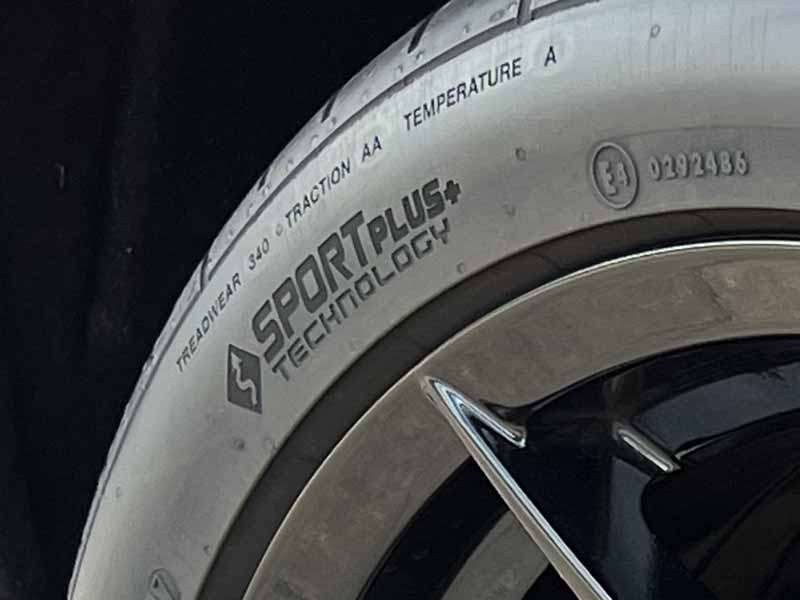
Choosing the Right High-Mileage Tire
When it comes to picking the right high-mileage tire, my experience as an automotive enthusiast and tire expert comes in handy. It’s not just about finding a tire that lasts long; it’s about finding the right tire for your car and your driving needs.
Factors to Consider
- Vehicle Type: The kind of car or truck you drive makes a big difference. Make sure the tire you choose is suitable for your vehicle.
- Driving Conditions: Think about where and how you drive. Do you often drive in rain or snow? Are you mostly on highways or city streets? Different tires are made for different conditions.
- Budget: Consider how much you’re willing to spend. Remember, investing a bit more in a high-mileage tire could save you money over time.
Tips for Selecting the Best Tire
- Read Reviews: Look at what others are saying about the tires you’re considering. For example, check out the Michelin Defender T+H Review for insights on its performance.
- Ask for Expert Advice: Don’t hesitate to ask for help at your local tire shop or from other car enthusiasts.
- Check Warranties: A longer warranty can be a sign of a tire’s durability and the manufacturer’s confidence in its product.
My Recommendations
From my experience, it’s always a good idea to go for a tire that balances durability with performance. Also, consider a tire that performs well in your local weather conditions. A good all-season tire can be a versatile choice for many drivers.
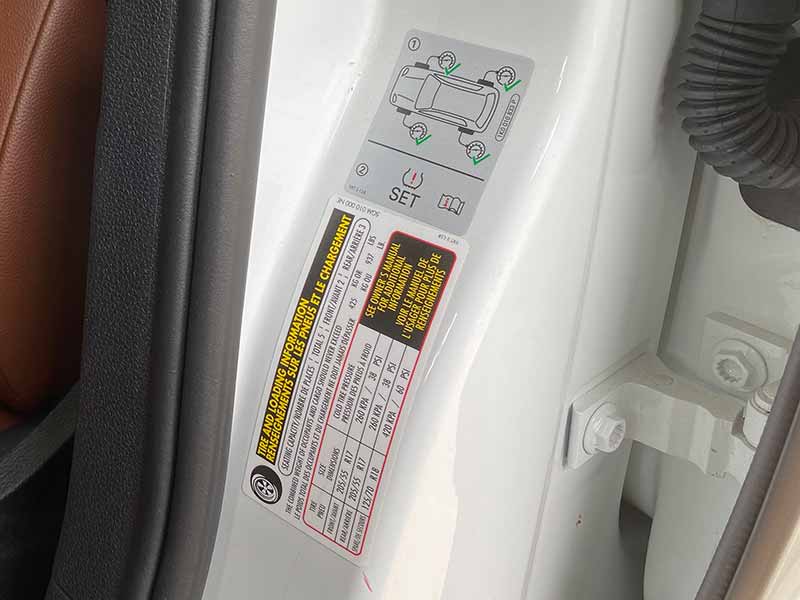
Maintenance and Care for Longevity
Proper maintenance and care are crucial for maximizing the lifespan of your tires, especially high-mileage ones. No tire manufacturer will stand behind a tire that wasn’t properly maintained.
Let me share some straightforward tips that can help you get the most out of your tires and ensure you can cash in on that warranty.
Regular Tire Maintenance
- Proper Inflation: Always keep your tires inflated to the recommended pressure. This helps them wear evenly and last longer.
- Regular Rotation: Rotating your tires every 5,000 to 8,000 miles helps prevent uneven wear.
- Balancing and Alignment: Have your tires balanced and your vehicle’s alignment checked periodically. This can prevent uneven wear and extend tire life.
Observing Driving Habits
- Smooth Driving: Avoid sudden starts and stops. Gentle acceleration and braking are easier on your tires.
- Avoid Overloading: Carrying too much weight puts extra strain on your tires. Stick to your vehicle’s recommended load capacity.
Regular Inspections
- Check for Wear: Regularly inspect your tires for uneven wear, cracks, or other signs of damage.
- Watch for Age Signs: Look out for signs of aging like dry rot, which appears as cracks in the tire surface.
Read The Fine Print
- Know The Requirements: Be sure you know what’s required when you buy your tires so you can ensure you hold up your end of the bargain.
- Keep Records: Be able to prove you met the requirements of the tire manufacturer for maintaining the tires by keeping records.
Resources
Below are some links you may find helpful when learning about tires:
Final Thoughts
Understanding high-mileage tires is key to making informed decisions about your vehicle’s footwear. These tires, with warranties ranging from 80,000 to 90,000 miles, offer a blend of longevity and performance. However, it’s important to remember that tire care and regular maintenance are just as crucial as the initial choice.
High-mileage tires are a worthwhile investment for those looking to save on replacements in the long run, but always keep in mind the aging factor of tires. Regular checks and mindful driving habits contribute significantly to the life span and safety of your tires.
Ultimately, the right high-mileage tire can offer both peace of mind and a more economical driving experience.
Good luck and happy motoring.
